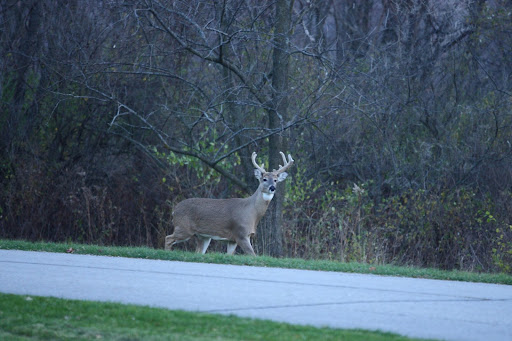Regulations and reporting requirements for wildlife collisions
Car Accident - March 5, 2023 by Horwitz, Horwitz & Associates
When driving in Illinois, it’s not uncommon to see or accidentally hit wild animals. In 2021, Illinois ranked 5th in the nation for the number of animal collision claims. If you find yourself in this unfortunate situation, you might be legally obligated to take certain actions.
Keep reading to learn more, and contact the personal injury lawyers at Horwitz, Horwitz & Associates if you’ve been injured in an animal-related accident.

Illinois regulations for accidentally hitting deer
Some wildlife collisions can happen without the driver even knowing. However, many of these collisions involve large game animals such as white-tailed deer, which, as the state mammal of Illinois, is a protected species. Due to their protected status, there are protocols that must be followed for accidents that injure or kill deer.
Claiming the carcass
Suppose a deer is killed as a result of a collision with a vehicle. In that case, if the driver is an Illinois resident, they will have priority in legally claiming or possessing the carcass for personal use – they are not allowed to barter or sell it.
If the driver doesn’t take possession of the deer before leaving the scene, any Illinois resident who is not delinquent in child support may possess the deer. The driver must promptly notify the Department of Natural Resources (IDNR) within 24 hours of the collision using the Claim a Road Kill Deer Report Form.
Drivers who are involved in deer-vehicle accidents and don’t wish to claim the carcass aren’t required to report the accident to the IDNR but might still be required to report the accident based on other circumstances as outlined below.
Killing an injured deer
Only law enforcement officers, while performing their duties, may kill a deer that was injured or crippled in a vehicle collision. This means that you cannot go out of your way to kill a deer that was injured but survived the collision. If you’re concerned about the well-being of an injured deer, call local law enforcement or a Conservation Police Officer in that county for guidance.
Other situations where reporting may be required
Deer are the only wild animals specifically mentioned in Illinois law regarding motor vehicle accidents, but there may be other situations where reporting is required. These rules may apply whether or not the animal is a deer.
Danger to other drivers
If a motor vehicle accident involving wildlife results in a dangerous situation for other drivers, the driver is required to report the accident to law enforcement.
This could include instances where the animal’s body is blocking the road, when its carcass is causing other drivers to swerve to avoid it, or when the animal is still alive and moving on or around the road. Failing to report the incident in these cases could result in a traffic citation or even criminal charges.
Property damage or bodily injury
Illinois requires that an accident report be filed for all motor vehicle accidents resulting in at least $1,500 in property damage, including accidents involving wildlife. The accident must also be reported if it resulted in bodily injury to any involved person, including the driver that hit the animal, a passenger, or the driver of another vehicle.
The report must be filed with the Illinois State Police within 10 days of the accident if law enforcement didn’t respond to the scene.
Should you report a wildlife accident even when it’s not required?
In cases where reporting isn’t required by law, there are a few scenarios in which you may still want to report the accident to authorities.
Possible insurance claim
It may be wise to call the police to the scene if you believe the animal-related accident may result in a claim through your auto insurance policy, either under your liability or comprehensive coverage. The responding officer can create an official record of the accident which might help you with your insurance claim.
Dead or injured animal
It’s a good idea to call local authorities if the animal is still alive and has been injured, even if it’s not posing a hazard to other drivers. Many municipalities, including Chicago, have resources for providing aid to wildlife or transporting injured animals. For instance, in Chicago you may notify:
- City of Chicago Animal Control and Rescue
- Flint Creek Wildlife Rehabilitation
- Chicago Bird Collision Monitors
The responding officers may be able to take the animal to a wildlife rehabilitation center or contact an animal control officer who can help.
Chicago also offers resources for removing dead animals from public areas. Even if the carcass isn’t blocking the roadway, you can do your part to keep the city clean by notifying the authorities. If you need to report a dead or injured animal in Chicago, you can call 311 or submit an online request for assistance.
Contact an attorney for further guidance
If you’re not sure whether you should report an animal-related accident, it’s best to err on the side of caution and call local authorities. Then, you may want to contact an experienced auto accident attorney for further guidance, especially if another driver caused the accident and they fled the scene.
A Chicago car accident lawyer with Horwitz, Horwitz & Associates can help you file a claim for damages with your insurance company and determine your legal rights in the matter. Reach out today at (800) 985-1819 to get started.


